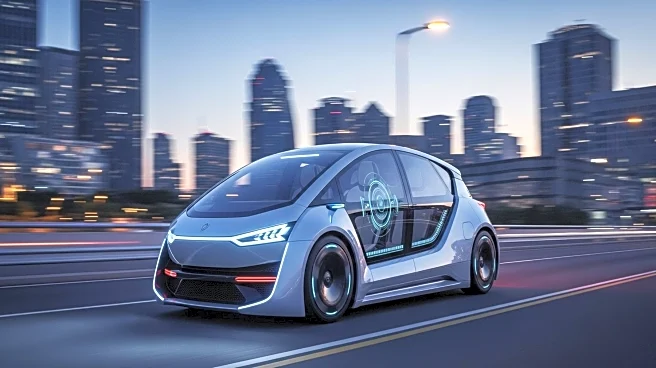What's Happening?
Tesla Inc. has announced the public availability of its robotaxi app, expanding its autonomous rideshare service beyond a select group of early access users in Austin, Texas. The service, initially launched in June with a limited fleet of Model Y SUVs, is now accessible to all through the app, as confirmed by Tesla's social media announcement. The company is focusing on scaling its robotaxi operations, betting heavily on autonomy and AI technologies. Tesla's expansion includes a non-autonomous rideshare service in the Bay Area, with plans for further growth in states like Arizona, Florida, and Nevada. Regulatory challenges remain, as Tesla seeks federal exceptions for its Cybercab model, which lacks traditional driving controls.
Why It's Important?
The expansion of Tesla's robotaxi service marks a significant step in the evolution of autonomous transportation, potentially reshaping urban mobility and the rideshare industry. By opening the service to the public, Tesla is positioning itself as a leader in autonomous vehicle technology, which could influence market dynamics and regulatory frameworks. The move may accelerate the adoption of autonomous vehicles, impacting traditional rideshare services and prompting competitors to innovate. However, regulatory hurdles and safety concerns, highlighted by incidents in Austin, could affect Tesla's ability to scale operations and achieve widespread acceptance.
What's Next?
Tesla plans to expand its robotaxi service to additional states, including Arizona, Florida, and Nevada, pending regulatory approvals. The company is actively seeking permits and engaging in discussions with state officials to facilitate this growth. In California, Tesla will need to secure permits from the Department of Motor Vehicles and the Public Utilities Commission to offer autonomous rideshare services. As Tesla navigates these regulatory landscapes, the company will likely continue refining its technology and addressing safety concerns to ensure compliance and public trust.









